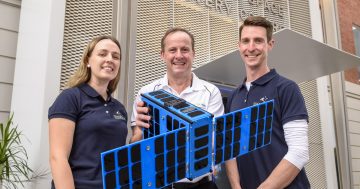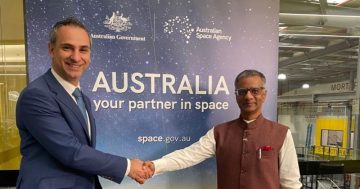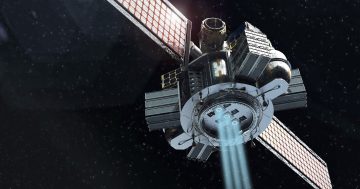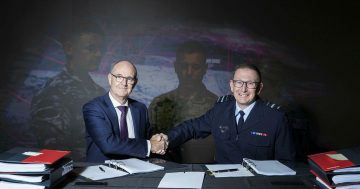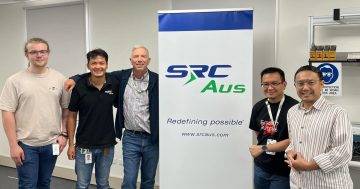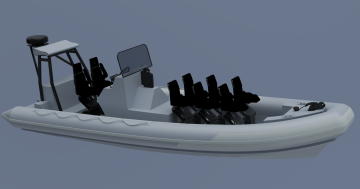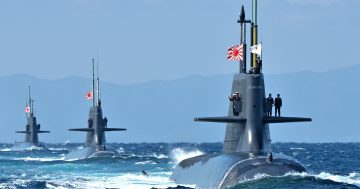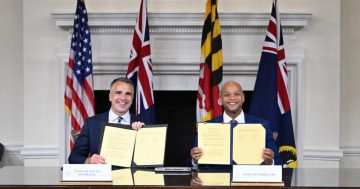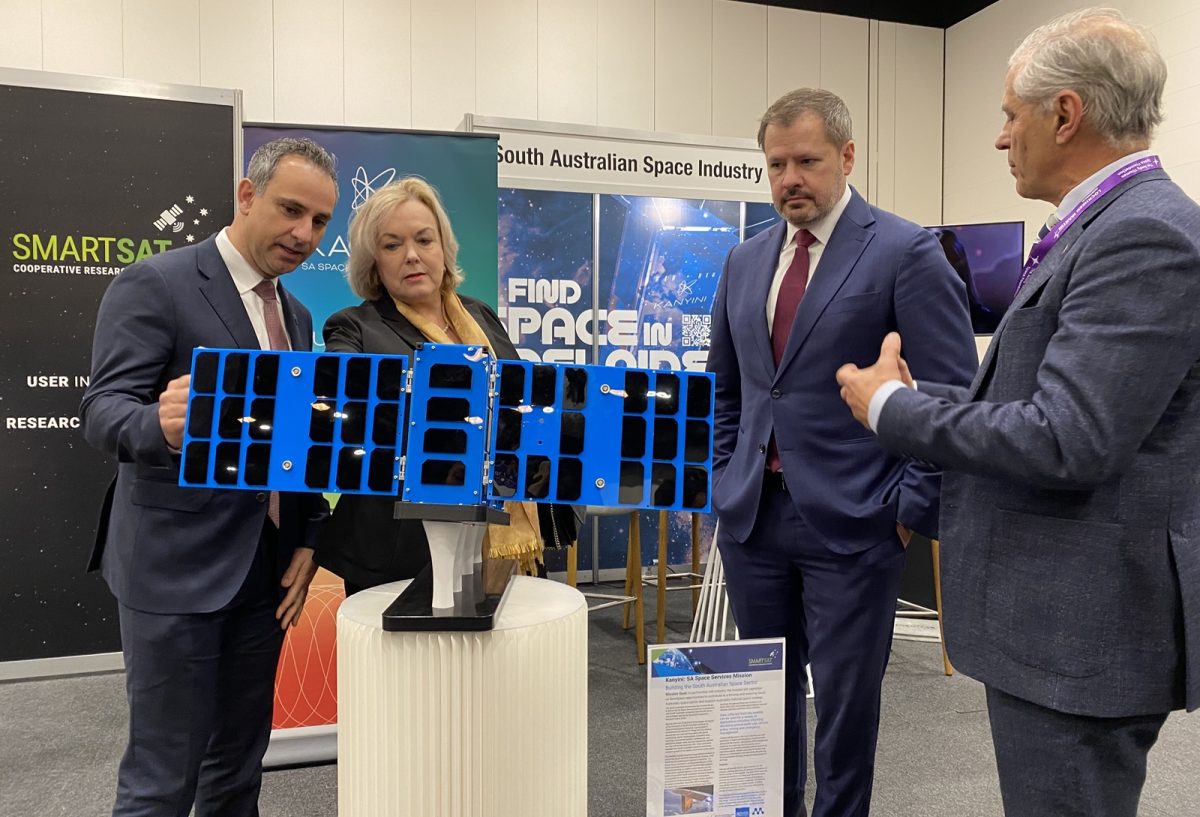
Head of the Australian Space Agency Enrico Palermo, New Zealand Minister for Space and Science, Innovation and Technology Judith Collins, Minister for Industry and Science Ed Husic, and SmartSat CRC CEO Professor Andy Koronios at the Australian Space Forum on 24 July. Photo: SmartSat CRC.
Australia and New Zealand will jointly fund at least four space research projects under the Australia-New Zealand Collaborative Space Program.
Announced on the sidelines of the Australian Space Forum conference in Adelaide on 24 July, the partnership between Australia’s Cooperative Research Centre (SmartSat CRC) and the New Zealand Ministry of Business, Innovation and Employment (MBIE) will commence next month.
The two parties say the partnership aims to establish enduring partnerships between Australian and New Zealand researchers to create platforms for larger-scale future research collaborations, help develop talent and joint expertise and support R&D in alignment with industry and end user needs.
Additionally, it says the research addresses major environmental, economic and social challenges through scientific collaboration, while leveraging the unique geographical advantages of Australia and New Zealand, such as the Southern Hemisphere location, clear skies, and varied topography.
The first four initial projects include research into monitoring methane emissions, enhancing real-time monitoring of greenhouse gases, managing free space optical communication nodes across Australia and New Zealand, improving the tracking of space objects, and developing a joint AUS-NZ concept for maritime domain awareness.
CEO of SmartSat CRC Professor Andy Koronios described the partnership as a significant advancement for trans-Tasman space collaboration.
“This partnership between Australia and New Zealand in the space sector demonstrates our commitment to leveraging our combined strengths and resources,” he said.
“These projects are a testament to our shared vision of driving innovation and developing capabilities that will not only benefit our respective countries but also contribute to global advancements in space technology.”
Chief Research Officer of SmartSat CRC Dr Carl Seubert, added, “We’re excited to be driving international research collaboration, and bringing Australian and New Zealand research organisations together to tackle significant issues through innovative space R&D.
“Initiatives such as this are essential to foster the development of space technology and amplify its impact to solve environmental, economic, and social challenges on Earth.”
In addition to the first four projects, SmartSat has also called for submissions for funding opportunities for further research activities under the program.
To this end, SmartSat CRC and MBIE are seeking proposals for collaborative six-month feasibility studies with up to $100,000 for research activities in each country. These studies are aimed at harnessing complementary resources and expertise to develop innovative research and development projects in the area of Earth observation that will drive the growth of the space industry in both countries.
The projects are open to public and private Australian and New Zealand research organisations, and should align with industry and end-user needs, addressing major environmental, economic, and social challenges.


